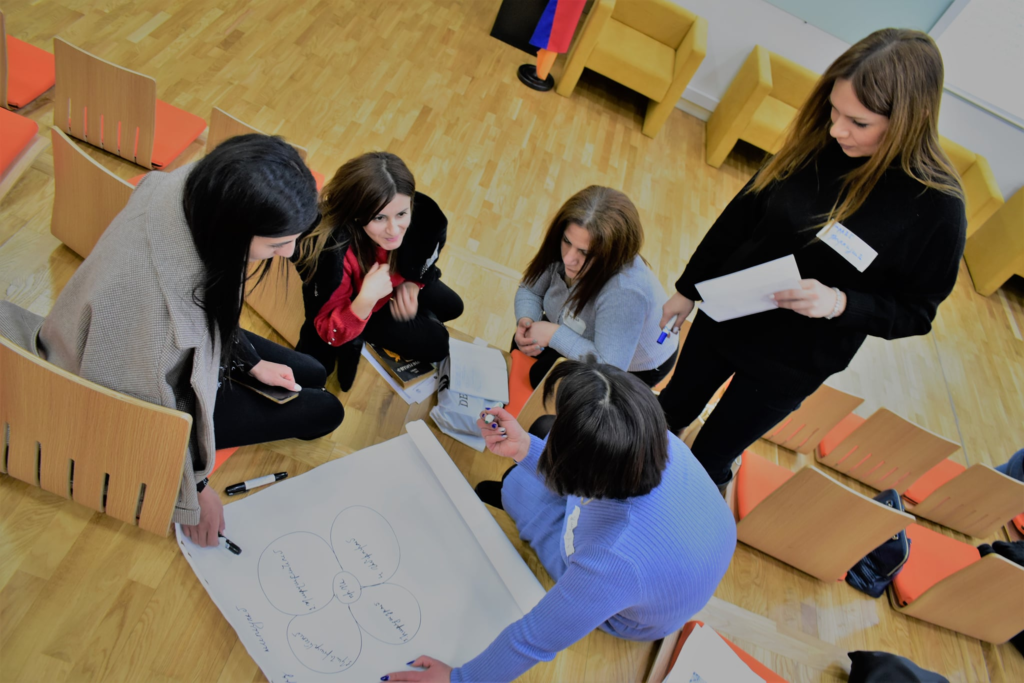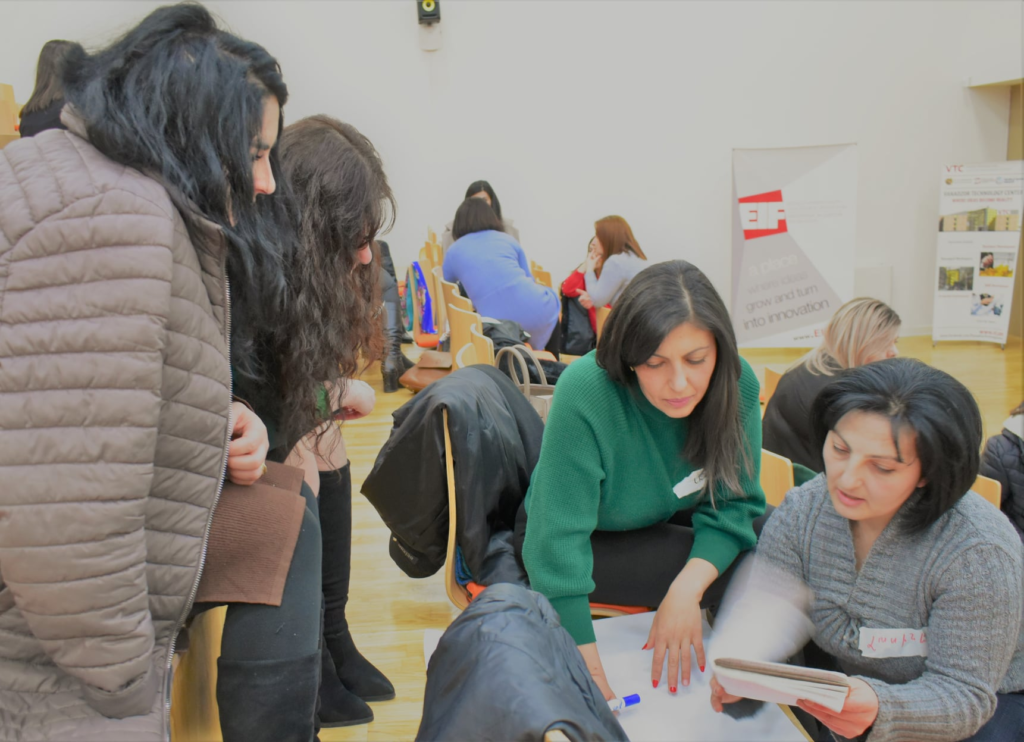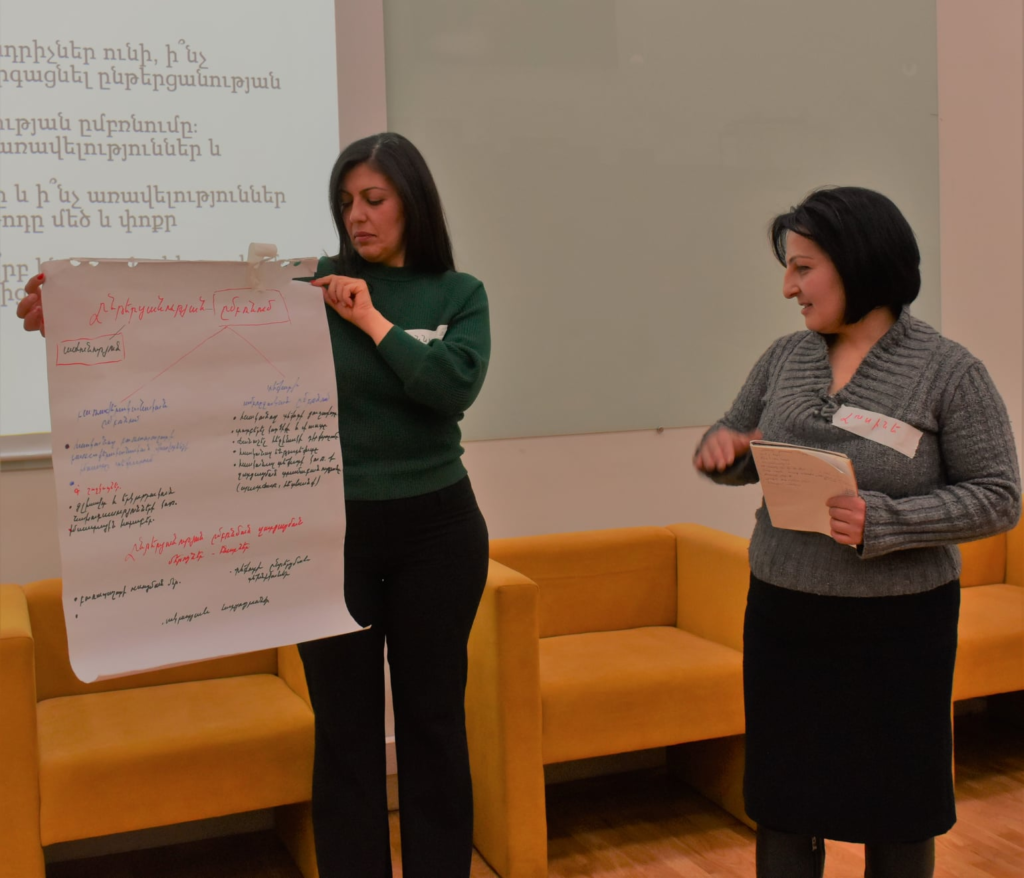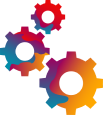
Developed reading skills are fundamental to children’s literacy and their right to education, as reading is a tool through which children access the majority of educational content. A study on the reading culture in Armenia conducted in 2012 revealed that 44% of the surveyed young people identified middle school as the period when they became readers. Only 6% of participants reported developing their reading habits in high school. This indicates that children and adolescents are at a critical stage for developing reading habits, as those who do not enjoy reading by the end of middle school have little chance of becoming readers afterward.

Ahead of International Education Day, the community of teachers from the 14 middle schools involved in the NorArar Education NGO’s “Reading Campaign Program” in the Lori region held their weekly meeting at the Vanadzor Technology Center (VTC) in a face-to-face format. The community critically reviewed the materials from the third week dedicated to understanding reading comprehension. The educators highlighted the situational and contextual factors and preconditions in their schools that would allow the presented strategies and methods to be effectively implemented in their reality.

Having teachers who are learners means having schools that learn. Only the systemic development of the capacity to learn can resolve the existing crisis in educational outcomes worldwide.

The “Reading Teaching Development Campaign Program” was implemented with the financial support of the European Union and within the framework of the “Civil Society Actors as Drivers of Change in the South Caucasus and Moldova” program by People in Need.





